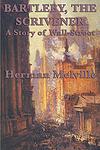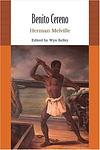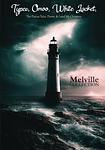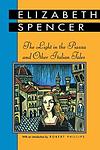Herman Melville
Herman Melville was an American novelist, short story writer, and poet of the American Renaissance period. Among his best-known works is 'Moby-Dick' (1851), a classic of American literature that details the voyage of the whaling ship Pequod and its captain Ahab's obsessive hunt for the titular white whale. Melville's writing is known for its use of complex symbolism, exploration of themes such as humanity's place in the universe, and critiques of society and religion. Despite gaining little recognition during his lifetime, Melville is now regarded as one of the greatest writers in American literature.
Books
This list of books are ONLY the books that have been ranked on the lists that are aggregated on this site. This is not a comprehensive list of all books by this author.
-
1. Moby Dick
The novel is a detailed narrative of a vengeful sea captain's obsessive quest to hunt down a giant white sperm whale that bit off his leg. The captain's relentless pursuit, despite the warnings and concerns of his crew, leads them on a dangerous journey across the seas. The story is a complex exploration of good and evil, obsession, and the nature of reality, filled with rich descriptions of whaling and the sea.
-
2. Bartleby the Scrivener
"Bartleby the Scrivener" is a story set in Wall Street, revolving around a law firm clerk named Bartleby who, after initially proving himself a diligent employee, begins to refuse his boss's orders with the phrase "I would prefer not to." Despite being fired and even imprisoned, Bartleby continues his passive resistance until his eventual death. The narrative explores themes of isolation, the mechanization of the workplace, and the inexplicable nature of human behavior.
-
3. Billy Budd
Set in the late 18th century, this novel tells the story of Billy Budd, a handsome, charismatic, but uneducated sailor who is forced to leave his merchant ship and join the crew of a British warship. Despite his popularity among the crew, he inadvertently makes an enemy of the master-at-arms, who falsely accuses him of mutiny. In a moment of panic, Budd accidentally kills his accuser, leading to his own court-martial and execution, despite the captain's reluctance and the crew's support. The novel explores themes of innocence, corruption, and the complexities of moral judgment.
-
4. Benito Cereno
"Benito Cereno" is a novella that tells the story of an American sea captain, Amasa Delano, who comes across a ship in distress off the coast of Chile. The ship, led by Captain Benito Cereno, appears to be in a state of disarray, with a mixed crew of Spanish sailors and African slaves. Throughout the story, Delano is kept in the dark about the true state of affairs on the ship, and it's only at the very end that he discovers a shocking truth - the slaves have revolted and are in control, with Cereno their captive. The novella is a tense exploration of power dynamics, race, and the nature of freedom.
-
5. I And My Chimney
The narrative centers around the protagonist's deep affection for his large, central chimney, which stands as a symbol of stability and tradition in his family home. Despite pressure from his wife and visitors to modernize and alter the structure, the protagonist staunchly defends the chimney's significance and resists change. The story unfolds as a humorous and satirical commentary on the conflicts between modernity and tradition, personal attachment to one's home, and the dynamics of marital compromise, all while showcasing the narrator's whimsical and obstinate character in his crusade to preserve his beloved chimney.
-
6. The Confidence Man
"The Confidence Man" by Herman Melville is a satirical novel that takes place on a Mississippi steamboat, where a mysterious man known as the Confidence Man interacts with various passengers, exploiting their weaknesses and manipulating their trust. Through a series of encounters and conversations, Melville explores themes of deception, human gullibility, and the complexities of identity, ultimately challenging the reader's perception of truth and the nature of confidence.
-
7. The Piazza Tales
"The Piazza Tales" is a collection of short stories that delve into themes of truth, humanity, and the nature of reality through a blend of satire, allegory, and adventure. The stories, set in various locations and time periods, explore the complexities of human experience, from the pursuit of an idealistic dream in a remote village to the mysterious and haunting encounters on the high seas. The author weaves rich, symbolic narratives that challenge readers to question their perceptions and the world around them, often blurring the lines between fantasy and reality. Each tale offers a unique perspective on the human condition, showcasing the author's masterful storytelling and deep philosophical insight.
-
8. Collected Poems
This anthology is a comprehensive collection of poetic works by a 19th-century American writer, more commonly known for his contributions to classic literature through his novels. The poems within this compilation reflect a range of themes, from the profound depths of the sea and the whaling life to meditations on the human condition, nature, and the cosmos. The author's use of rich, evocative language and his exploration of existential questions demonstrate his literary prowess beyond his prose, revealing a multifaceted contemplation of the world and the author's own internal landscape.
-
9. Clarel
This epic poem, one of the longest in American literature, explores the profound complexities of faith and doubt through the spiritual journey of its titular character, a young American student of divinity. Set against the backdrop of a pilgrimage in the Holy Land, the narrative delves into the interactions and philosophical dialogues between a diverse cast of characters, each representing different facets of religious and existential thought. The protagonist's quest for meaning is fraught with intellectual and emotional turmoil, reflecting the author's own meditations on belief, morality, and the human condition in the post-Civil War era.








